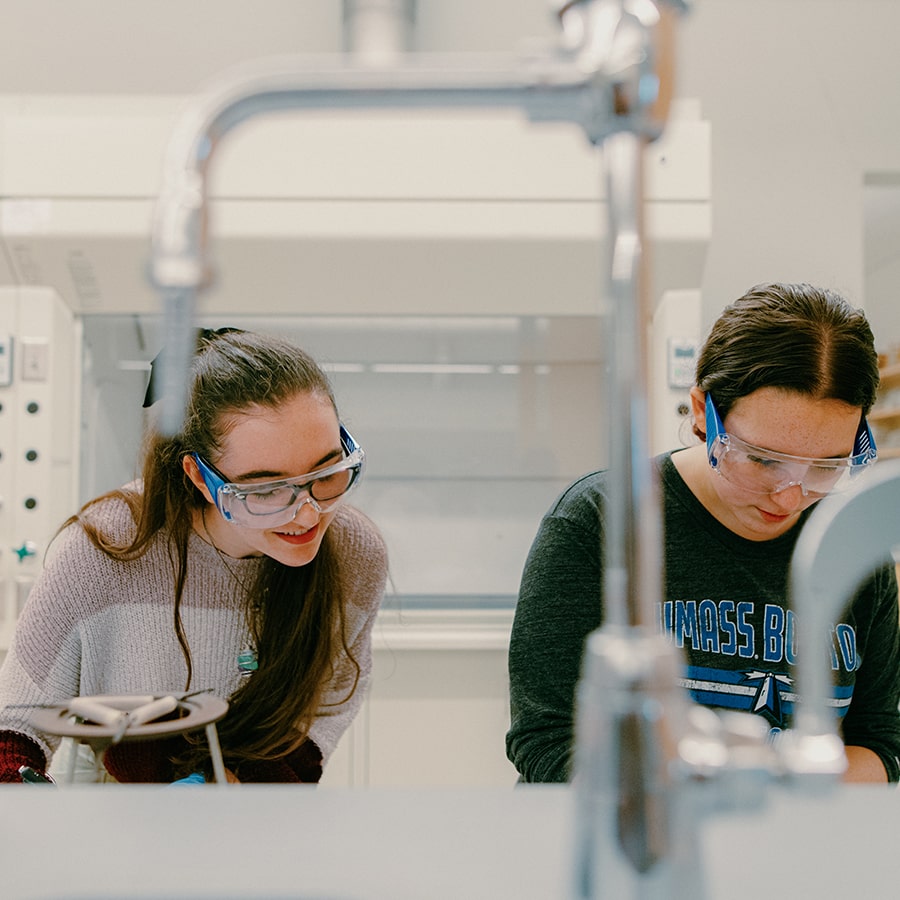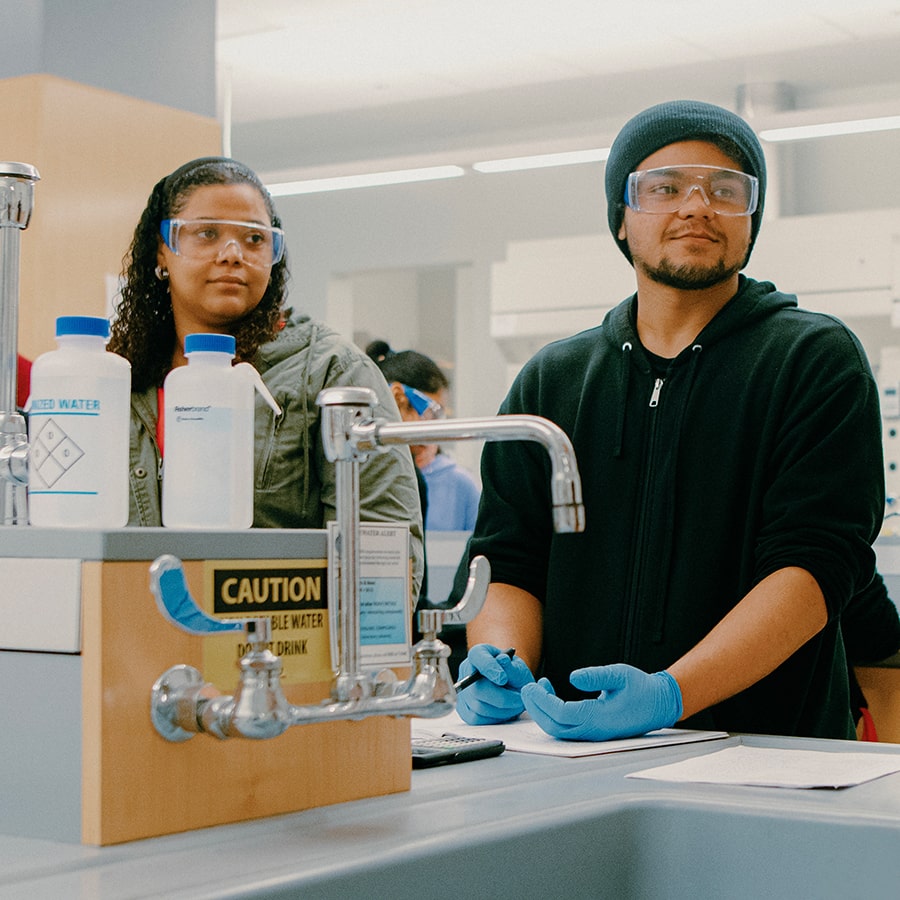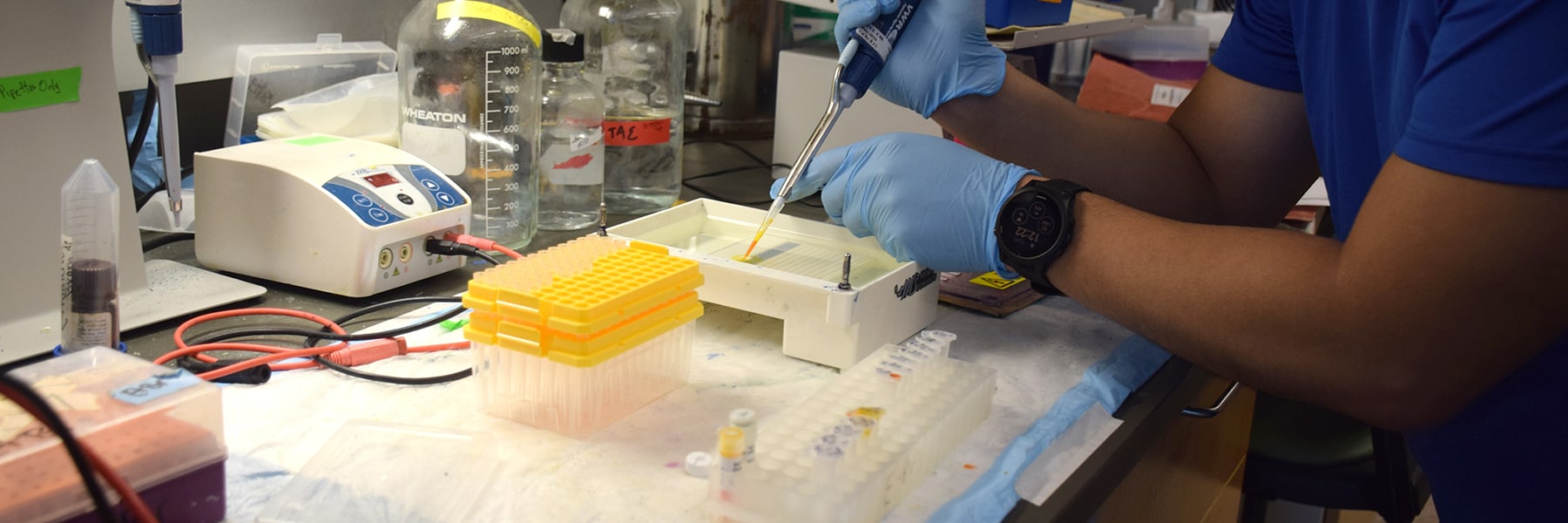Plan Your Education
How to Apply
Applicants must meet general graduate admission requirements in addition to the following program-specific requirements:
- Submission of the graduate admissions application form
- A distinguished undergraduate transcript; competitive students generally have at least a 3.0 overall GPA, although lower grades can be acceptable
- A bachelor's degree, or its equivalent, from a 4-year college or university of recognized standing
- Official transcripts of all graduate and undergraduate work. (Two copies of each transcript must be sent directly to the university’s Office of Graduate Admissions. A final transcript showing that the bachelor’s degree has been awarded must be received before the student can enter the program.)
- Three letters of recommendation
- Optional: Submissions of scores from the Graduate Record Examination (GRE) Combined Aptitude Test
Test of English as a Foreign Language (TOEFL official test score) is required for international applicants. For more information regarding minimal TOEFL scores, visit Graduate Admissions.
The stated interests of a prospective student must coincide to an acceptable degree with the faculty specialties represented in the program. The Biology Graduate Committee, in conjunction with the director of Graduate Programs in Biology, is responsible for reviewing applications and for recommending candidates to the dean of graduate studies.
Deadlines & Cost
Deadlines: January 1 (priority deadline for funding consideration) and April 1 (final) for fall; October 1 (priority deadline) or November 1 (final deadline) for spring
Application Fee: The nonrefundable application fee is $75. UMass Boston alumni and current students that plan to complete degree requirements prior to graduate enrollment can submit the application without paying the application fee.
Program Cost Information: Bursar's website
Curriculum - Environmental Biology Track
Core Courses (7 Credits)
- BIOL 607 - Biostatistics and Experimental Design 3 Credit(s)
- BIOL 617 - Biostatistics and Experimental Design Lab 1 Credit(s)
- BIOL 650 - Scientific Communication 3 Credit(s)
Electives (21 Credits)
Complete 21 credits of 600-level graduate courses chosen in consultation with the academic advisory committee.
Students may take BIOL 672 - Directed Readings in Biology for up to three elective credits. One three-credit 300-level undergraduate course may also count towards fulfilling the electives. Up to six credits may be transferred from another program in accordance with the policy of the Office of Graduate Studies. Any other substitutions for coursework (e, g, transfer credits, courses taken elsewhere, etc.) must be approved by the Graduate Program Director and the Graduate Committee.
- BIOL 609 - Advanced Data Analysis for Biology 3 Credit(s)
- BIOL 634 - Methods in Phylogenetics and Macroevolutionary Analysis 3 Credit(s)
- BIOL 635 - Population Genetics and Diversity 3 Credit(s)
- BIOL 637 - Climate Change: Mechanisms and Biological Impacts 3 Credit(s)
- BIOL 638 - Advanced Ecology 3 Credit(s)
- BIOL 646 - Disease Ecology 3 Credit(s)
- BIOL 647 - Data Analysis for Disease Ecology 1 Credit(s)
- BIOL 652 - Biological Diversity and Evolution 3 Credit(s)
- BIOL 672 - Directed Readings in Biology 1-3 Credit(s)
- BIOL 677 - Advanced Eukaryotic Genetics 3 Credit(s)
Current Literature (4 Credits)
- BIOL 653 - Current Literature in Biology 1 Credit(s) - complete four times
Research (32 Credits)
Up to five credits can be replaced by elective course credit with the approval of the academic advisory committee.
- BIOL 899 - Dissertation Research 1-99 Credit(s)
For more information on curriculum, including course descriptions and degree requirements, visit the Academic Catalog.
Curriculum - Molecular, Cellular, and Organismal Biology (MCOB) Track
Core Course (12 Credits)
- BIOL 612 - Advanced Cell Biology 3 Credit(s)
- BIOL 650 - Scientific Communication 3 Credit(s)
- BIOL 676 - Advanced Molecular Biology Lecture 3 Credit(s)
- BIOL 625 - Genomics and Biotechnology 3 Credit(s)
or - BIOL 677 - Advanced Eukaryotic Genetics 3 Credit(s)
Electives (12 Credits)
Complete 12 credits of graduate courses chosen in consultation with the academic advisory committee.
Students may take BIOL 672 - Directed Readings in Biology for up to three elective credits.
Current Literature (4 Credits)
- BIOL 653 - Current Literature in Biology 1 Credit(s) - complete four times
Research (32 Credits)
Up to five credits can be replaced by elective course credit with the approval of the academic advisory committee.
- BIOL 899 - Dissertation Research 1-99 Credit(s)
For more information on curriculum, including course descriptions and degree requirements, visit the Academic Catalog.
Learning Outcomes
Environmental Biology PhD:
- Students will learn how to interpret and critically analyze papers from the primary literature related to their area of research.
- Students will be able to formulate answerable scientific questions that are critical to the advancement of their research field.
- Students will be able to design and independently carry out experiments to answer relevant scientific questions in their field of study.
- Students will learn how to carry out long-term strategic planning for a research program.
- Students will be able to justify their experiments, interpret their results, and communicate their scientific work in an oral and written manner.
Molecular, Cellular, and Organismal Biology (MCOB), PhD:
- Students will learn how to interpret and critically analyze papers from the primary literature related to their area of research.
- Students will be able to formulate answerable scientific questions that are critical to the advancement of their research field.
- Students will be able to design and independently carry out experiments to answer relevant scientific questions in their field of study.
- Students will learn how to carry out long-term strategic planning for a research program.
- Students will be able to justify their experiments, interpret their results, and communicate their scientific work in an oral and written manner.
Graduation Criteria
Program Requirements - Environmental Biology Track
For the Ph.D. in Biology/Environmental Biology, 60 credits are required, distributed as follows: 7 credits of required core courses, 21 credits of elective courses with 4 of those 1-credit Current Literature (BIOL653) courses, and 32 credits of research.
Doctoral candidacy: Students must pass written and oral qualifying examinations before undertaking research at the doctoral level.
Dissertation: Candidates must compose and defend a dissertation based on original research.
Teaching: Students are required to participate in the teaching program as teaching assistants for at least two semesters.
Departmental presentation: Candidates must present a seminar of their research nine to twelve months after admission to candidacy.
GPA: Students must maintain a GPA of 3.0 throughout the program.
Minimum grade: No more than one course with a grade of C may be applied toward the program.
Residency: No more than six credits from another graduate program may be applied toward the program.
Statute of limitations: Eight years.
Program Requirements - Molecular, Cellular, and Organismal Biology (MCOB) Track
Complete 60 credits from 13 courses including four core courses, four electives, four semesters of current literature, and 32 credits of research.
Doctoral candidacy: Students must pass written and oral qualifying examinations before undertaking research at the doctoral level.
Dissertation: Candidates must compose and defend a dissertation based on original research.
Teaching: Students are required to participate in the teaching program as teaching assistants for at least two semesters.
Departmental presentation: Candidates must present a seminar of their research nine to twelve months after admission to candidacy.
GPA: Students must maintain a GPA of 3.0 throughout the program.
Minimum grade: No more than one course with a grade of C may be applied toward the program.
Residency: No more than six credits from another graduate program may be applied toward the program.
Statute of limitations: Eight years.
Contact
Graduate Program Director Linda Huang
Linda.Huang [at] umb.edu
(617) 287-6674
Alexa MacPherson
Alexa.MacPherson [at] umb.edu
(617) 287-6603

Biology
Learn more about UMass Boston's Biology department, our research, and our faculty.
Explore the Department of Biology
College of Science & Mathematics
Learn more about the faculty, research, and programs that make up our College of Science and Mathematics.
Explore Now